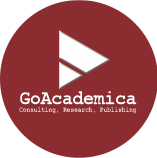THE ROLE OF INDUSTRIAL PSYCHOLOGY IN HUMAN RESOURCES MANAGEMENT IN THE ERA OF SOCIETY 5.0
DOI:
https://doi.org/10.15575/jim.v4i1.23466Keywords:
Industrial Psychology, Human Resource Management, Era Society 5.0.Abstract
The emergence of the Covid-19 pandemic has harmed many companies. But apart from the company, employees as human entities also experience various problems, such as stress. Industrial psychology is then present to help understand the impacts that occur in society. This study then aims to see the role of industrial psychology in the era of Society 5.0. This research will use a qualitative approach. The research data comes from the results of previous research and studies which still have relevance to the contents of this study. The results of this study then found that the market will always continue to grow to remain efficient and effective. The emergence of a pandemic that has destroyed many industrial sectors requires a new strategy. Industrial psychology is present and actively plays a role in developing human resource management in the Society 5.0 era. Through the presence of industrial psychology, it is hoped that human resources will survive well even though the dynamics of the industrial world continue to change.
References
Abdussamad, H. Z., & SIK, M. S. (2021). Metode penelitian kualitatif. CV. Syakir Media Press.
Ansari, N. Y., Farrukh, M., & Raza, A. (2021). Green human resource management and employees proâ€environmental behaviours: Examining the underlying mechanism. Corporate Social Responsibility and Environmental Management, 28(1), 229-238.
Balzer, W. K., Brodke, M. H., Kluse, C., & Zickar, M. J. (2019). Revolution or 30-year fad? A role for IO psychology in Lean management. Industrial and Organizational Psychology, 12(3), 215-233.
Butt, A. S., Ahmad, A. B., & Shah, S. H. H. (2021). Role of personal relationships in mitigating knowledge hiding behaviour in firms: a dyadic perspective. VINE Journal of Information and Knowledge Management Systems.
Chen, X., Zou, D., & Xie, H. (2020). Fifty years of British Journal of Educational Technology: A topic modeling based bibliometric perspective. British Journal of Educational Technology, 51(3), 692-708.
Chien, G. C., Mao, I., Nergui, E., & Chang, W. (2020). The effect of work motivation on employee performance: Empirical evidence from 4-star hotels in Mongolia. Journal of Human Resources in Hospitality & Tourism, 19(4), 473-495.
De Klerk, J. J., Joubert, M., & Mosca, H. F. (2021). Is working from home the new workplace panacea? Lessons from the COVID-19 pandemic for the future world of work. SA Journal of Industrial Psychology, 47(1), 1-14.
Donthu, N., & Gustafsson, A. (2020). Effects of COVID-19 on business and research. Journal of business research, 117, 284-289.
Dubey, S., Biswas, P., Ghosh, R., Chatterjee, S., Dubey, M. J., Chatterjee, S., ... & Lavie, C. J. (2020). Psychosocial impact of COVID-19. Diabetes & Metabolic Syndrome: clinical research & reviews, 14(5), 779-788.
Favaretto, M., De Clercq, E., Gaab, J., & Elger, B. S. (2020). First do no harm: An exploration of researchers’ ethics of conduct in Big Data behavioral studies. Plos one, 15(11), e0241865.
Fu, G., Xie, X., Jia, Q., Li, Z., Chen, P., & Ge, Y. (2020). The development history of accident causation models in the past 100 years: 24Model, a more modern accident causation model. Process Safety and Environmental Protection, 134, 47-82.
Gayatri, N. A. G., Santoso, D. S., Andrian, D., & Yong, W. (2022). Restaurant Transaction Application Based on Android System. Ultima InfoSys: Jurnal Ilmu Sistem Informasi, 13(1), 10-18.
Kapecki, T. (2020). Elements of sustainable development in the context of the environmental and financial crisis and the COVID-19 pandemic. Sustainability, 12(15), 6188.
Kell, H. J. (2022). The Criterion Problem in Cross-Cultural Performance Research. International Journal of Cross-Cultural Management, 14705958221100669.
Khassawneh, O., & Elrehail, H. (2022). The Effect of Participative Leadership Style on Employees’ Performance: The Contingent Role of Institutional Theory. Administrative Sciences, 12(4), 195.
Kuo, H. C., Tseng, Y. C., & Yang, Y. T. C. (2019). Promoting college student’s learning motivation and creativity through a STEM interdisciplinary PBL human-computer interaction system design and development course. Thinking Skills and Creativity, 31, 1-10.
Kwiotkowska, A., & Gębczyńska, M. (2022). Job satisfaction and work characteristics combinations in Industry 4.0 environment—Insight from the Polish SMEs in the Post–Pandemic era. Sustainability, 14(20), 12978.
Li, J. J., Bonn, M. A., & Ye, B. H. (2019). Hotel employee’s artificial intelligence and robotics awareness and its impact on turnover intention: The moderating roles of perceived organizational support and competitive psychological climate. Tourism Management, 73, 172-181.
Liu, T., Lipowski, M., Xue, Y., Xiao, T., Liu, H., Xu, R., ... & Zhao, Z. (2021). The impact of entrepreneurship education of entrepreneurs on the entrepreneurial psychology of sports majors from the perspective of pedagogy. Frontiers in Psychology, 12.
O’Connor, D. B., Aggleton, J. P., Chakrabarti, B., Cooper, C. L., Creswell, C., Dunsmuir, S., ... & Armitage, C. J. (2020). Research priorities for the COVIDâ€19 pandemic and beyond: A call to action for psychological science. British Journal of Psychology, 111(4), 603-629.
Rudolph, C. W., Allan, B., Clark, M., Hertel, G., Hirschi, A., Kunze, F., ... & Zacher, H. (2021). Pandemics: Implications for research and practice in industrial and organizational psychology. Industrial and Organizational Psychology, 14(1-2), 1-35.
Singh, A., Kumar, V., Verma, P., & Kandasamy, J. (2022). Identification and severity assessment of challenges in the adoption of industry 4.0 in Indian construction industry. Asia Pacific Management Review.
Sumadi, S., & Ma'ruf, M. H. (2020). Implementation of the Concept and Theory of Management Functions in Efforts to Improve Quality. International Journal of Economics, Business and Accounting Research (IJEBAR), 4(02).
Sung, T. K. (2018). Industry 4.0: a Korea perspective. Technological forecasting and social change, 132, 40-45.
Wijayasekera, S. C., Hussain, S. A., Paudel, A., Paudel, B., Steen, J., Sadiq, R., & Hewage, K. (2022). Data analytics and artificial intelligence in the complex environment of megaprojects: Implications for practitioners and project organizing theory. Project Management Journal, 53(5), 485-500.
Downloads
Published
How to Cite
Issue
Section
Citation Check
License

This work is licensed under a Creative Commons Attribution-ShareAlike 4.0 International License.













